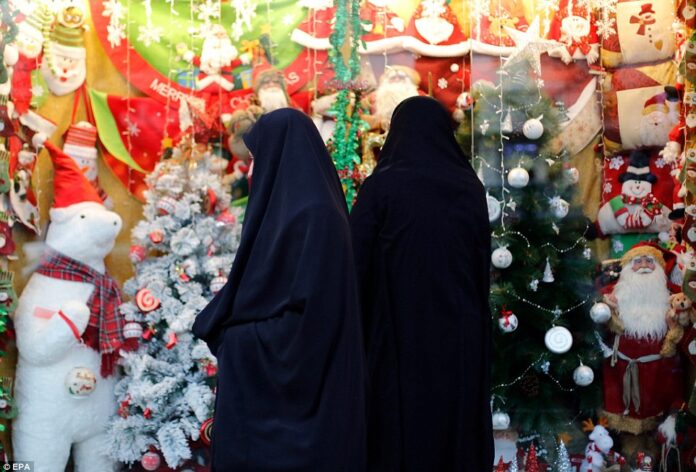Christmas, a widely celebrated holiday in many parts of the world, is often associated with Christian traditions and festivities. However, the question of whether Muslims celebrate Christmas sparks curiosity and discussion. Here, we delve into the diverse perspectives and practices surrounding this topic, shedding light on the nuances of how Muslims engage with the holiday season.
Origin of Christmas
The origin of Christmas dates back to prehistoric celebrations around the midwinter solstice. The holiday has evolved, incorporating elements from various cultures and traditions. In Roman culture, two holidays were celebrated in December: Saturnalia, honoring the god of agriculture Saturn, and the birth of Mithra, their sun god, on December 25th. As Christianity spread, the celebration of Christmas emerged as a way to observe the birth of Jesus, although the exact date of his birth is not specified in the Bible.Â
Pope Julius I chose December 25th to coincide with the Pagan festival of Saturnalia, aiming to absorb existing customs and attract more people to the Christian faith. Despite efforts to curb Christmas celebrations during periods of religious reform, the holiday persisted and evolved into the festive occasion known today, characterized by traditions such as gift-giving, family gatherings, and the display of Christmas symbols like trees, Santa Claus, and mistletoe.
Understanding the Diversity of Muslim Communities
Muslim communities around the globe are incredibly diverse, encompassing a wide range of cultural practices, beliefs, and interpretations of religious teachings. As such, the question of whether Muslims celebrate Christmas cannot be answered with a simple yes or no. The approach to Christmas festivities among Muslims varies significantly depending on factors such as geographical location, cultural influences, and individual beliefs.
In many predominantly Muslim countries, where Islam is the dominant religion, the celebration of Christmas is not a common practice among the Muslim population. This is primarily due to the religious significance of Christmas in Christianity and the emphasis on maintaining distinct religious identities. However, in multicultural societies where Muslims coexist with people of various faiths, the observance of Christmas among Muslims takes on a more nuanced and diverse form.
The Cultural and Social Aspects of Christmas Celebrations
For some Muslims living in multicultural societies, the celebration of Christmas is more about embracing the cultural and social aspects of the holiday rather than its religious connotations. This can include participating in community events, exchanging gifts with friends and colleagues, and enjoying festive decorations and music. The spirit of goodwill and joy that permeates the holiday season is often seen as a universal sentiment that transcends religious boundaries.
It is important to note that while some Muslims may partake in certain aspects of Christmas celebrations, such as attending holiday parties or decorating their homes, the religious significance of Christmas as the birth of Jesus Christ is not typically observed within Islamic teachings. Muslims believe in Jesus as a prophet, but the theological differences between Islam and Christianity shape the way in which Christmas is approached within Muslim communities.
Respecting Differences and Building Understanding
As with any cultural or religious practice, the question of whether Muslims celebrate Christmas underscores the importance of respecting diversity and fostering interfaith understanding. While some Muslims may choose to participate in Christmas festivities as a way of engaging with their broader community, others may prefer to maintain a more distinct separation between their religious beliefs and the traditions of other faiths.
Ultimately, the decision to celebrate Christmas as a Muslim is a personal one that reflects individual beliefs, cultural influences, and social contexts. By engaging in open dialogue and mutual respect, individuals from different faith backgrounds can deepen their understanding of one another and cultivate a spirit of inclusivity and harmony during the holiday season and beyond.
Final Words
The question of whether Muslims celebrate Christmas is not a straightforward one, as the answer varies depending on a range of factors. While some Muslims may choose to participate in certain aspects of Christmas festivities, others may prefer to maintain a more reserved approach. Regardless of individual practices, the key lies in fostering respect, understanding, and unity among diverse communities during the holiday season and throughout the year.
Read More: Friendly Fire will not be Tolerated



